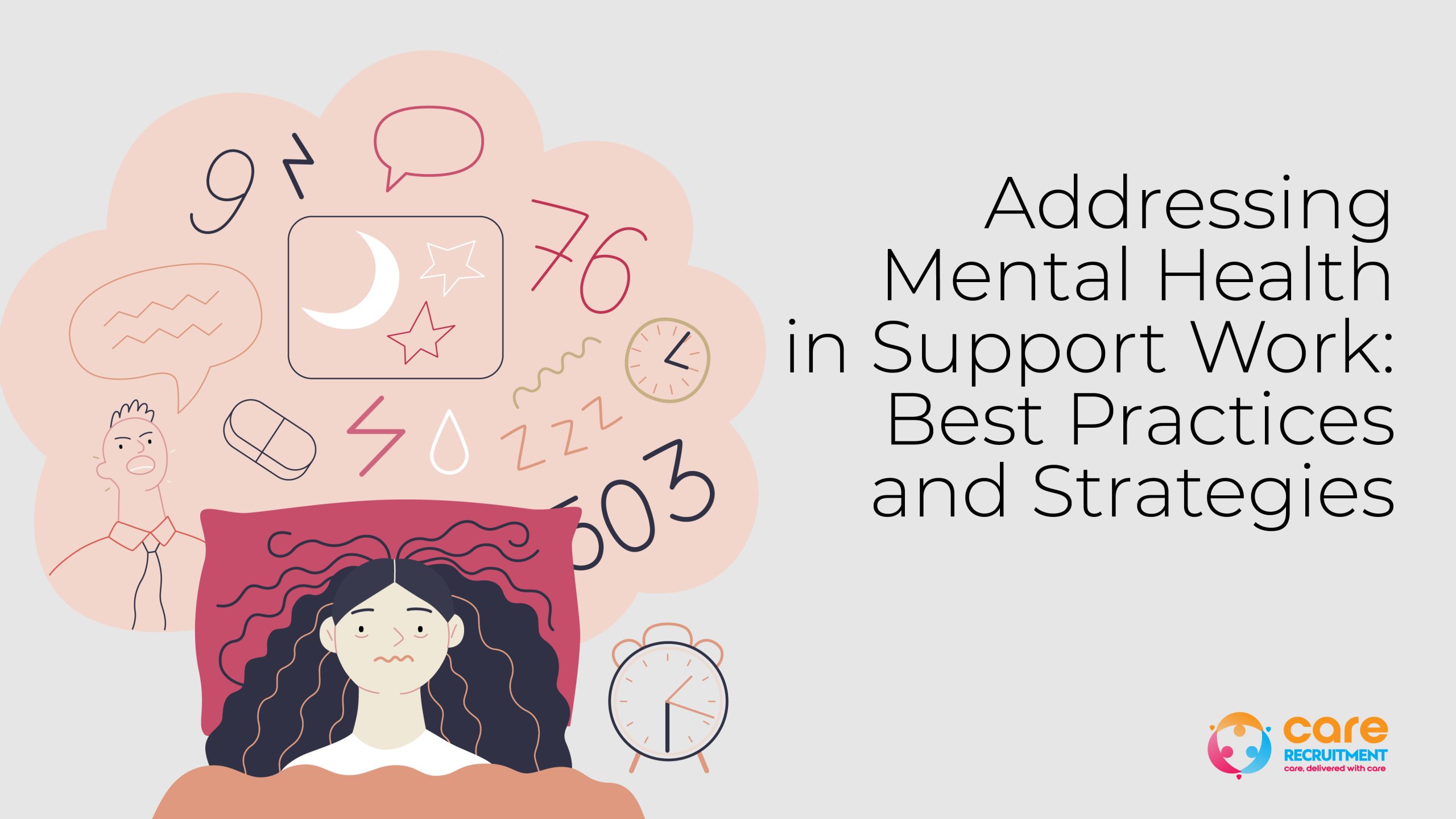
Mental health in support work is a critical aspect of overall well-being and has a significant effect on the service and everyday tasks of a support worker. Support work can be demanding and stressful, and it often involves working with individuals who have mental health issues. As a support worker, it is essential to develop strategies and best practices to address mental health effectively. In this blog, we will explore some best practices and strategies for addressing mental health in support work, to ensure that as a support worker, you get the most out of your supporting days.
Self-care is crucial to maintain mental health. Self-care involves taking steps to care for your physical, emotional, and mental health. This can include getting enough rest, eating a balanced diet, engaging in physical exercise, and taking breaks from work to relax and recharge. These workers should also take advantage of resources like counselling and support groups to help manage stress and cope with the emotional demands of their work.
Active listening is an essential skill to develop. Active listening involves giving your full attention to the person speaking and showing that you are engaged and interested in what they are saying. This involves using non-verbal cues like maintaining eye contact, nodding, and providing verbal feedback like summarizing what the person has said or asking clarifying questions. Active listening helps to build trust and rapport with the person you are supporting and can help to establish a positive relationship.
Empathy is the ability to understand and share the feelings of another person. Empathy is essential in this line of work because it helps support workers to understand the emotions and experiences of the people they are supporting. This can help support workers to provide better support by tailoring their approach to the individual's needs and preferences.
Establishing boundaries is crucial for maintaining one's mental health. This involves setting limits on the amount of time and energy you devote to work and establishing clear boundaries with the people you are supporting. This can involve setting limits on the number of hours you work, taking breaks when needed, and making sure that you have time for your own interests and hobbies outside of work.
Training and education are critical for support workers to develop the skills and knowledge needed to address mental health effectively. This can involve attending workshops, seminars, and conferences, as well as participating in ongoing professional development opportunities. It is also important for support workers to stay up to date on the latest research and best practices in mental health support.
Collaborating with other professionals can be an effective way to address mental health in support work. This can involve working with mental health professionals like therapists, psychiatrists, and psychologists to provide coordinated care to the people you are supporting. Collaborating with other professionals can help to ensure that the people you are supporting receive the best possible care and support.
In conclusion, addressing mental health in support work is crucial for maintaining the well-being of support workers and the people they are supporting. Strategies like self-care, active listening, empathy, establishing boundaries, training and education, and collaborating with other professionals can help support workers to provide effective and compassionate care. By developing and implementing these best practices and strategies, support workers can ensure that they are providing the best possible support to the people they serve.